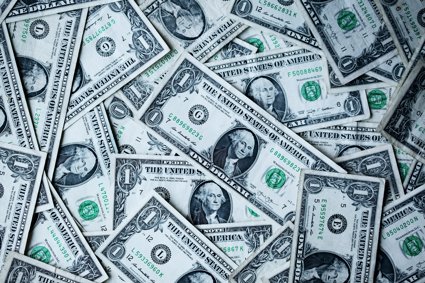
Why are many billionaires in Asia and the Middle East?
The focus of this lesson why the numbers of billionaires in Asia and the Middle East are rapidly rising (and, by extension, why these regions are now rapidly developing)
Key questions
What are 'Asia' and 'The Middle East' and how many billionaires do they have there?
How are we helping Asia to produce more billionaires
How are we helping the Middle East get richer?
What are human resources and natural resources?
How many billionaires live in ‘Asia’ and ‘The Middle East’?
How many billionaires live in ‘Asia’ and ‘The Middle East’?
Asia is the world’s largest and most populous continent with more than 60% or the world’s current population. China, Taiwan, Japan and South Korea and Singapore have strong manufacturing bases with Japan and South Korea and increasingly China and India, host to many multinational corporations. At the time of writing there were 142 billionaires in Asia. The Middle East is a historical and political region of Africa-Eurasia with no clear definition. Many countries located around the Persian Gulf have large quantities of crude oil. At the time of writing there were 57 billionaires in the Middle East.
How are we helping Asia to produce more billionaires?
The number of billionaires is on the rise in Asia as globalisation means that economies of these countries are increasingly interdependent with those in Europe and North America.
Many companies from Europe, North America and Japan have operations in Asia’s developing countries to take advantage of their human resource of cheap labour and relatively developed infrastructure. Owing to its large and competitive information technology industry and well educated and English speaking population, India has become a major location for outsourcing services. Demand for cheaper and cheaper consumer goods in Europe and North America has fuelled a booming manufacturing economy in many Asian countries, most notably China. This means many Asian countries such as China are making and selling us vital goods and services that we need in order to sustain our current standard of living. As we continue to consume, China has become a hub for waste recycling; some 40 million tonnes of are shipped there from the UK a year. Much of this waste plastic and metal is seen as a vital resource in China for new industries which in turn help to boost the economy. But billionaires are being made not just by making things that appear in shops globally, but also by serving their domestic consumers through retailing, property, media and finance. Increasingly well off young Asians particularly the 30-somethings are buying more and more retail goods in the same way that young British people have long been accustomed to helping to make these countries richer.
How are we helping the Middle East get richer?
The world depends on fossil fuels and oil is the one we use the most. Between 30% and 40% of the entire world’s energy comes from oil. Oil is the raw material for many everyday products such as make-up, shampoo, plastics and petrol. Over half the world’s oil is in the Middle East. Saudi Arabia has a quarter of the world’s oil and Kuwait a tenth. Countries with carbon-based economies and lifestyles or with few or no fossil fuels of there own are dependent on the region.
What are human resources and natural resources?
Natural resources occur naturally in or on the Earth, that we can make use of, rivers, soil and oil are all examples of natural resources. Human resources are skills, labour and entrepreneurship of the population.
Links
Starter
What are 'Asia' and 'The Middle East' and how many billionaires live there?
Download the world outline map.
Can you draw a boundary line aorund where you think Asia and the Middle East are? Label as many countries as possible.
Label your map with the numbers of billionaires for Asia and the Middle East. Use the activity Where are the billionaires? or download billionaires by region to help you.
Main Activity
How are we helping Asia to produce more billionaires?
In October 2006 Zhang Yin, 49, was the first woman to top the list of China’s richest people. She is worth nearly £2 billion pounds. But who is she, how did she make her money and how might we have helped her get rich?
Download the mystery who is Zhang Yin and why does she like rubbish?
How might we be helping the Middle East get richer?
Look at the map of oil reserves.
Map of oil reserves
Look at the list of billionaires to see who lives in these countries, especially in Saudi Arabia, UAE and Kuwait. Also look at all the household products that use oil.
Plenty of your own family’s money is flowing into the pockets of middle-east oil billionaires.
You might think about some of the current issues in the news affecting Middle-Eastern oil-rich nations (e.g. Iraq and Iran). Is oil is always a “golden ticket” for wealth?
Plenary
What are human resources and natural resources?
One of the reasons for the Middle East's wealth has been its use of its natural resources - oil. One of the reasons for the rapid growth of wealth in Asia has been a plentful supply of labour - human resources.
Individuals, nations and regions can accumulate great wealth if they:
-
Can organise a large workforce to do work of global importance
-
Hold control over a valuable physical resource such as oil
Discuss as a class how rich countries may have become wealthy. Was it natural or human resources or a combination of both? How do countries with few human resources get a work force? How do countries with few natural resources get hold of them? What about these countries:
-
United States
-
Japan
-
China
-
United Kingdom
-
Saudi Arabia
File nameFiles
File type
Size
Download
Who Wants To Be A Billionaire? Lesson 3 Who Is Zhang Yin and Why Does She Like Rubbish? (1)
167 KB